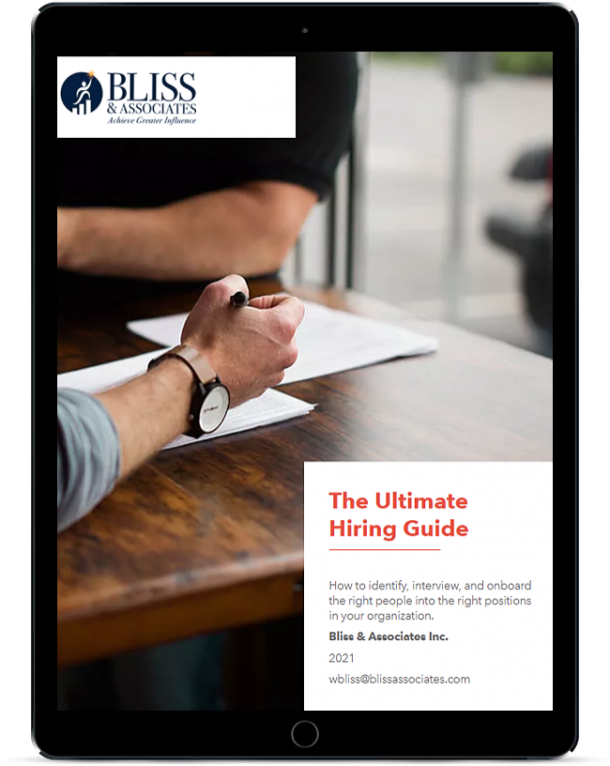
Hiring a new employee is always a risk. No matter how much you try to learn about someone through interviews, references, and other traditional methods before making a job offer, you can’t be certain the candidate will succeed.
To reduce that risk, many organizations have embraced personality assessments as part of the hiring process. Through the use of assessments and the insights they offer into how people are hardwired and motivated, companies can revolutionize their hiring process. But a cautionary note should be added here – the insights gained from personality assessments should never be used as the sole criteria in making any employment or promotion decision.
As someone who has helped numerous clients assess candidates and existing employees for selection and development purposes, I certainly endorse the high value of utilizing a few (not many) personality assessments.
However, even the best personality assessment in the world is not a magic bullet. If an assessment is not used in the context of the bigger picture—taking into consideration where the candidate will fit into the organization—its potential for positive impact will be limited. To make the most of personality assessments during and after the hiring process, you’ll need to answer five questions.
- Why Does the Role Exist? By understanding your organization’s strategy and the specific objectives you are hoping to achieve, you can better determine which performance competencies matter most in each role you are looking to fill. Unfortunately, job descriptions rarely paint a clear picture of the strategic importance of a role or the desired results that are expected.
- What Are the Must-Haves? When clients discuss their job requirements, their list is usually quite long. It is rare, however, to find a candidate who displays the exact blend of performance competencies that perfectly fit with all those requirements. The discussion typically turns towards prioritizing which qualities are truly critical for success and which ones are nice to have but nonessential. Making those determinations can be challenging, yet critically important, especially when several people are involved in the decision-making process.
Organizations that successfully identify the critical success factors are at a major advantage in using assessment data to compare candidates’ performance competencies and, ultimately, to make better-informed hiring decisions.
- What Is the Culture of the Organization? I’ve observed many business leaders hire candidates who seemed to be a good fit for a position in regards to knowledge and skills, yet failed because they were not a good fit for the culture of the organization. “Organizational culture” can be described as the values at the heart of a company, along with the behaviors that are rewarded versus those that are viewed negatively.
- What External Factors Contribute to Success? While a candidate’s personality assessment might exhibit the ideal performance competencies for success in the job, other factors are also important to determine how engaged that candidate is likely to be. Variables such as the personality and style of the candidate’s would-be supervisor, the physical work environment, competitive forces affecting the industry, and financial incentives and rewards can affect an employee’s long-term fulfillment and commitment to an organization.
- How Can I Set a New Hire Up for Long-Term Success? The most talented employees have other options. Thus, focusing on career development and providing a clear growth path based on a recent hires’ unique strengths and motivations is critical. You’ve already invested a great deal of resources to find the right person for a position, so the next step is to tap into the power of the assessment results for maximizing productivity, high performance, and increasing the likelihood of retention.
If there’s one thought I can impart to people who use (or are thinking of using) personality assessments: the data from the assessment should remain a living part of an employee’s development. It’s not just for hiring! Unfortunately, many of the assessment instruments measure “situational” data and cannot be relied on months or years later. Choose the assessment instrument wisely!
By using personality assessments to understand what really drives a person, business leaders can not only hire the best candidates but also support company strategy, reinforce the culture, and ensure you have engaged and productive employees now and tomorrow.
Let’s talk about how you can utilize personality assessments in your organization – it is worth the discussion!
Best regards,
Bill
PS – The above article was “heavily” adapted from Mark Greenburg, President and CEO of Caliper Corporation. I have personally utilized the “Caliper Profile” tool for over 15 years and administered it to over 2,000 professionals and executives on behalf of many of my clients.

